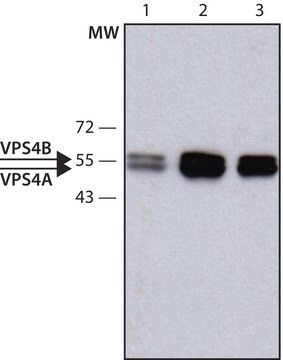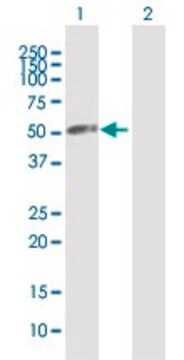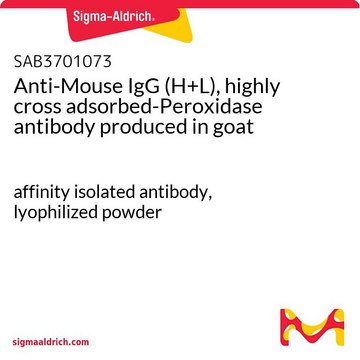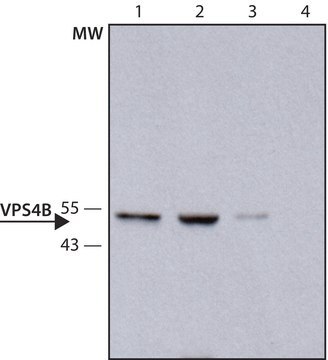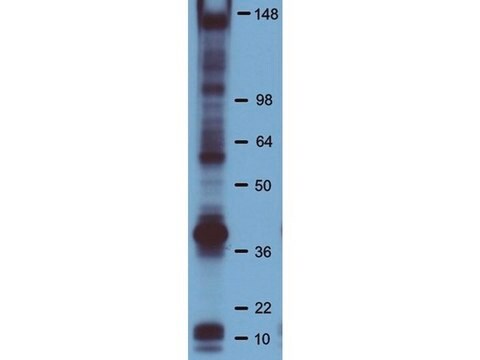SAB4200215
Anti-VPS4A antibody, Mouse monoclonal
clone VPS4-110, purified from hybridoma cell culture
Synonyme(s) :
Anti-SKD1, SKD1A, SKD2, VPS4-1, Anti-Vacuolar protein sorting factor 4A, Anti-hVPS4
About This Item
Produits recommandés
Source biologique
mouse
Conjugué
unconjugated
Forme d'anticorps
purified from hybridoma cell culture
Type de produit anticorps
primary antibodies
Clone
VPS4-110, monoclonal
Forme
buffered aqueous solution
Poids mol.
antigen ~50 kDa
Espèces réactives
mouse, canine, bovine, human, rat
Concentration
~1.0 mg/mL
Technique(s)
immunoprecipitation (IP): suitable
western blot: 1-2 μg/mL using whole extracts of mouse 3T3 or human HEK-293 cells.
Isotype
IgG1
Numéro d'accès UniProt
Conditions d'expédition
dry ice
Température de stockage
−20°C
Modification post-traductionnelle de la cible
unmodified
Informations sur le gène
human ... VPS4A(27183)
mouse ... Vps4a(116733)
rat ... Vps4a(246772)
Description générale
Application
- immunoblotting
- immunoprecipitation
- immunolabelling
Actions biochimiques/physiologiques
Forme physique
Clause de non-responsabilité
Not finding the right product?
Try our Outil de sélection de produits.
Code de la classe de stockage
12 - Non Combustible Liquids
Classe de danger pour l'eau (WGK)
WGK 1
Point d'éclair (°F)
Not applicable
Point d'éclair (°C)
Not applicable
Certificats d'analyse (COA)
Recherchez un Certificats d'analyse (COA) en saisissant le numéro de lot du produit. Les numéros de lot figurent sur l'étiquette du produit après les mots "Lot" ou "Batch".
Déjà en possession de ce produit ?
Retrouvez la documentation relative aux produits que vous avez récemment achetés dans la Bibliothèque de documents.
Notre équipe de scientifiques dispose d'une expérience dans tous les secteurs de la recherche, notamment en sciences de la vie, science des matériaux, synthèse chimique, chromatographie, analyse et dans de nombreux autres domaines..
Contacter notre Service technique
